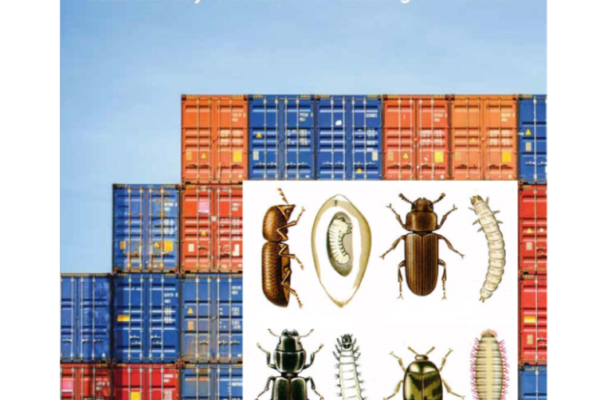On 11 April the World Shipping Council released the 2024 update of the Joint Industry Guidelines for the Cleaning of Containers, previously published in 2023, which has become a valued source of guidance when it comes to preventing pest contamination.
The latest version provides further detail on the concept of custodial responsibility – the inspections and measures that each party in the supply chain should undertake when the container is in their custody, as well as the requirement for the receiving party to inform the tenderer if the container or its cargo has any visible pest contamination.
For the 2024 update, the industry parties behind the Guidelines – the Bureau International des Containers (BIC), the Container Owners Association (COA), the Institute of International Container Lessors (IICL) and World Shipping Council (WSC) – announced the addition of the International Cargo Handling Coordination Association (ICHCA) as a new partner in supporting the implementation of the guidelines among cargo handlers.
Every year, 250 million containers are transported across the world with food, clothes, electronics and other goods we all need. While crucial for the smooth functioning of the global supply chain, containers and their cargoes can also harbour and transfer contaminating pests. The WSC says all parties in the supply chain have a shared responsibility for stopping the spread of pests by keeping cargo and containers clean, and the Prevention of Pest Contamination of Containers: Joint Industry Guidelines for the Cleaning of Containers provide easy-to-use best practices to help everyone do their part.
All parties in the supply chain – from manufacturers, to exporters, packers, freight forwarders, inland logistics providers, warehouse storage providers, ocean carriers, and importers – must take responsibility for maintaining cargo and containers clean when in their care. By applying the best practices described in the WSC’s Guide the parties can keep containers and their cargoes clean, fulfilling their custodial responsibility and reducing the risk of pest contamination and transfer.
“Each party in the international container supply chain has a custodial responsibility to make sure cargo and containers are clean when they arrive and when they leave their care. If we all live up to these standards, containers will reach their destination faster and our agriculture, forestry and natural resources are protected,” says Lars Kjaer, Senior Vice President of WSC.
Experience shows that the introduction of new pests can severely upset an existing ecosystem, with serious ecological consequences and possibly billion dollar impacts on a nation’s economy. Regulators and national authorities play a central role in stopping the transfer of pests, but given the scale of global trade it is prevention – stopping pests from entering cargo or containers in the first place – is the best solution.
To download a copy of the 2024 Report, follow this link: Pests — World Shipping Council
Members of the World Shipping Council include:
A.P. Møller-Maersk (including Maersk Line, Safmarine) – China COSCO Shipping Corporation Ltd.(COSCO) including OOCL – CMA CGM Group (including ANL, APL, Containerships ) – Crowley – Evergreen Marine Corporation – Hapag-Lloyd AG – HMM Co., Ltd. – Independent Container Line (ICL) – Kawasaki Kisen Kaisha Ltd. (K-Line) – Matson, Inc. – Mediterranean Shipping Company (MSC) – Mitsui O.S.K. Lines Ltd. (MOL) – NYK Line (NYK) – Ocean Network Express (ONE) – Pacific International Lines (PIL) – X-Press Feeders – Wan Hai Lines Ltd. – Wallenius Wilhelmsen – Yang Ming Marine Transport Corporation – Zim Integrated Shipping Services, Ltd. – Swire Shipping
Read this related article from our archives: Outcomes of the Clean Container Workshop
As licensed Customs Brokers and International Freight Forwarders, Colless Young professionally handles your shipping at all major Australian ports and airports. We provide a complete range of logistics services by sea and air, import and export, including customs and quarantine clearance, fumigation treatment, warehousing and trucking.

